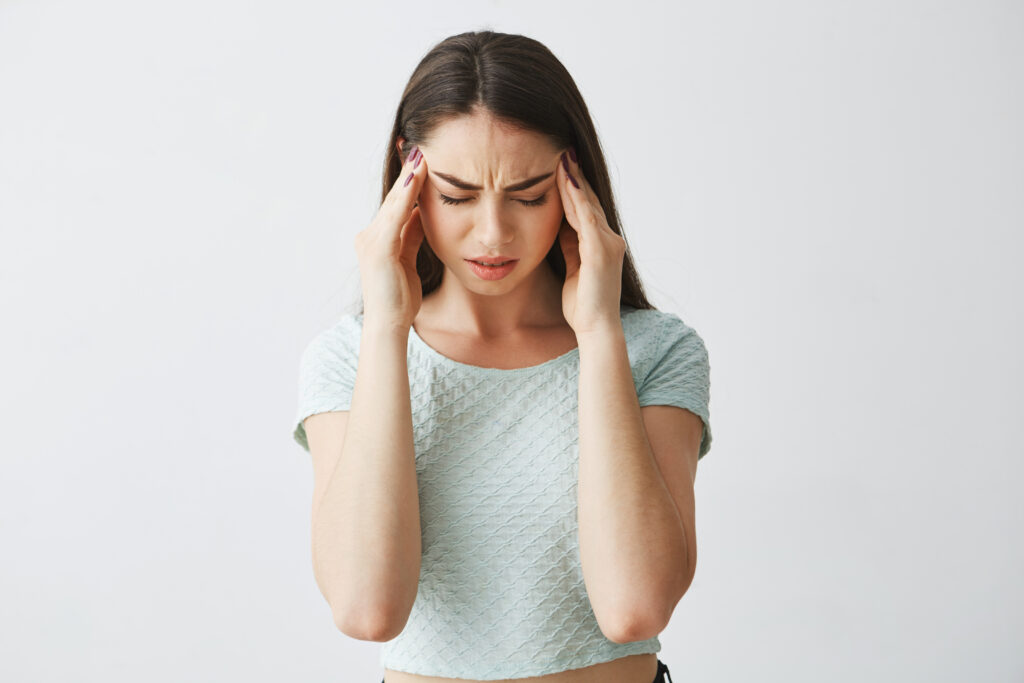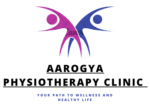
Table of Contents
Introduction
Do you find yourself reaching for painkillers whenever a headache strikes? What if there was a natural way to alleviate that throbbing discomfort? Enter pressure points – an ancient technique rooted in traditional medicine that can offer relief from headaches without resorting to medication. In this article, we’ll delve into the world of pressure points for headaches, explaining each method in a way that’s easy to understand.
Understanding Pressure Points
Before we dive into the specific pressure points, let’s grasp the concept. Pressure points are specific areas on the body that, when pressed or massaged, can help alleviate pain, stimulate circulation, and promote relaxation. They’re like tiny hubs that connect to different parts of the body through energy pathways.
The Temple Touch
One common pressure point for head aches is located in the temples. Gently massaging the temples in a circular motion can help relieve tension and ease headache pain. This technique stimulates blood flow, relaxes the muscles, and promotes a sense of calm.
The Third Eye Point
The “third eye” point is situated between your eyebrows, just above the bridge of your nose. Applying gentle pressure to this spot can help reduce headache intensity and promote relaxation.
Joining Valley: Hands and Feet
Located between the thumb and index finger, this pressure point is not only effective for headache relief but also for overall wellness. Applying pressure and massaging this area can help alleviate tension and promote relaxation throughout the body. The same principle applies to the pressure points on your feet.
Neck Nirvana
Tension headaches often originate in the neck. By applying pressure at the base of your skull, where your neck meets your head, you can ease tension and reduce headache discomfort. A gentle massage in this area can work wonders.
Heavenly Sleep
At the base of your skull, there’s a hollow depression known as the “Gates of Consciousness.” Applying pressure to this area can provide relief from head aches and even improve sleep quality. It’s a win-win!
The Shoulder Zone
Shoulder tension can contribute to headaches. By massaging the pressure points in your shoulders and upper back, you can release tension and potentially prevent headaches from occurring.
Waking up with headaches
Waking up with headaches can be quite distressing and put a damper on the start of your day. There are several potential reasons why this might be happening:
- Sleep Position: Your sleep position could be a contributing factor. Sleeping in an awkward position or with your neck at an uncomfortable angle might strain your muscles and lead to tension headaches.
- Bruxism (Teeth Grinding): Many people unconsciously grind their teeth during sleep. This can cause muscle tension in your jaw and lead to headaches upon waking.
- Sleep Apnea: Sleep apnea is a condition where your breathing is repeatedly interrupted during sleep. It can lead to reduced oxygen levels in your blood, triggering headaches.
- Dehydration: Overnight, your body can become dehydrated, especially if you haven’t been drinking enough water. Dehydration can cause headaches.
- Caffeine Withdrawal: If you’re used to having caffeine regularly and you don’t consume it before bed, you might experience caffeine withdrawal headaches upon waking.
- Sinus Issues: Sinus congestion or infections can lead to headaches that are particularly noticeable upon waking.
- Poor Sleep Quality: If you’re not getting restful sleep, it can contribute to headaches. Factors like an uncomfortable mattress, noise, or an irregular sleep schedule can play a role.
- Tension and Stress: Emotional stress and tension can manifest as headaches. If you’re dealing with stressors in your life, they might become more prominent as you wake up.
To address these issues and reduce waking headaches:
- Adjust Sleep Position: Experiment with different sleeping positions to find one that minimizes strain on your neck and head.
- Address Bruxism: If you suspect teeth grinding, talk to your dentist. They might recommend a mouthguard.
- Manage Sleep Apnea: If sleep apnea is suspected, consult a healthcare professional. They might suggest lifestyle changes or devices to improve your breathing during sleep.
- Stay Hydrated: Drink water consistently throughout the day to prevent dehydration.
- Control Caffeine Intake: If you consume caffeine, try to do so consistently and avoid abrupt withdrawal.
- Treat Sinus Issues: Over-the-counter or prescribed treatments can alleviate sinus-related headaches.
- Prioritize Sleep Quality: Create a comfortable sleep environment and establish a regular sleep routine.
- Manage Stress: Practice relaxation techniques such as deep breathing, meditation, or yoga to reduce tension and stress.
The Conclusion
Pressure points offer a holistic and drug-free approach to managing headaches. By understanding and utilizing these specific points, you can find relief whenever a headache strikes. Remember, while pressure points can be incredibly effective, results may vary from person to person. It’s always a good idea to explore different methods and see what works best for you.
Waking up with headaches can be quite distressing and put a damper on the start of your day. There are several potential reasons why this might be happening:
- Sleep Position: Your sleep position could be a contributing factor. Sleeping in an awkward position or with your neck at an uncomfortable angle might strain your muscles and lead to tension headaches.
- Bruxism (Teeth Grinding): Many people unconsciously grind their teeth during sleep. This can cause muscle tension in your jaw and lead to headaches upon waking.
- Sleep Apnea: Sleep apnea is a condition where your breathing is repeatedly interrupted during sleep. It can lead to reduced oxygen levels in your blood, triggering headaches.
- Dehydration: Overnight, your body can become dehydrated, especially if you haven’t been drinking enough water. Dehydration can cause headaches.
- Caffeine Withdrawal: If you’re used to having caffeine regularly and you don’t consume it before bed, you might experience caffeine withdrawal headaches upon waking.
- Sinus Issues: Sinus congestion or infections can lead to headaches that are particularly noticeable upon waking.
- Poor Sleep Quality: If you’re not getting restful sleep, it can contribute to headaches. Factors like an uncomfortable mattress, noise, or an irregular sleep schedule can play a role.
- Tension and Stress: Emotional stress and tension can manifest as headaches. If you’re dealing with stressors in your life, they might become more prominent as you wake up.
To address these issues and reduce waking headaches:
- Adjust Sleep Position: Experiment with different sleeping positions to find one that minimizes strain on your neck and head.
- Address Bruxism: If you suspect teeth grinding, talk to your dentist. They might recommend a mouthguard.
- Manage Sleep Apnea: If sleep apnea is suspected, consult a healthcare professional. They might suggest lifestyle changes or devices to improve your breathing during sleep.
- Stay Hydrated: Drink water consistently throughout the day to prevent dehydration.
- Control Caffeine Intake: If you consume caffeine, try to do so consistently and avoid abrupt withdrawal.
- Treat Sinus Issues: Over-the-counter or prescribed treatments can alleviate sinus-related headaches.
- Prioritize Sleep Quality: Create a comfortable sleep environment and establish a regular sleep routine.
- Manage Stress: Practice relaxation techniques such as deep breathing, meditation, or yoga to reduce tension and stress.
FAQs
Q1: Are pressure points a guaranteed headache cure?
A: While pressure points can provide relief for many individuals, they might not eliminate headaches entirely. It’s essential to explore what works best for your body.
Q2: Can I perform pressure point techniques on myself?
A: Absolutely! Many pressure points are easily accessible and can be self-massaged for relief.
Q3: How often should I use pressure point techniques?
A: You can use these techniques as often as needed, but remember to listen to your body. Overdoing it might lead to discomfort.
Q4: Can pressure points help with other types of pain?
A: Yes, pressure points are believed to assist with various types of pain, including stress, tension, and even digestive discomfort.
Q5: Is it advisable to seek professional advice before trying pressure point techniques?
A: If you have chronic headaches or underlying health conditions, consulting a healthcare professional before trying pressure point techniques is a wise choice.
